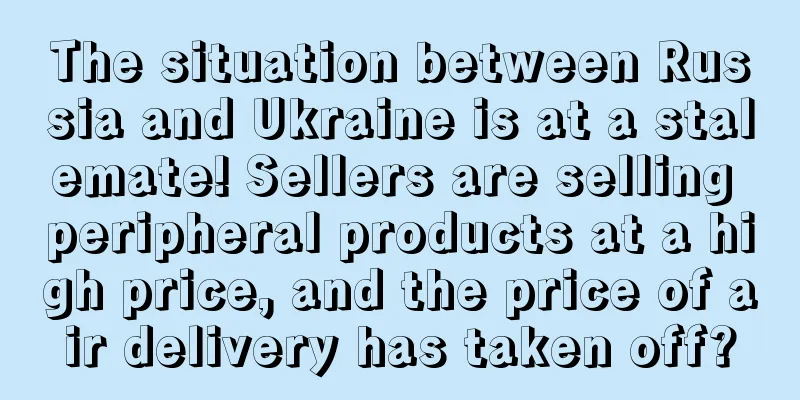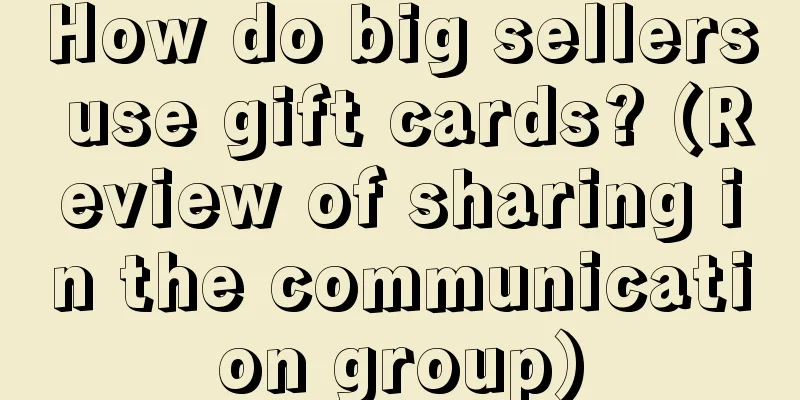|
▶ Video account attention cross-border navigation The hope of mankind is like an eternal star, and dark clouds cannot cover its light. Especially today, peace is not an ideal or a dream, it is the wish of all people. ——Ba Jin
Since the outbreak of the Russo-Ukrainian war on February 24, the mood of cross-border sellers has been ups and downs. Sometimes they are "working hard for Ukraine" because of their concern about the situation between Russia and Ukraine, and sometimes they feel pain because of the increase in logistics costs... Just recently, the international oil price hit a new high, breaking through $100 per barrel, which undoubtedly made the already tight profits of cross-border sellers even worse.
However, some sellers took advantage of the situation between Russia and Ukraine to find another way and rushed to Amazon's BSR. It is learned that many products related to the Russia-Ukraine conflict have been put on sale on various Amazon sites, among which some products related to the Ukrainian flag have even topped the Amazon list. Moreover, these products have only been on sale for a short time, some of them were only put on sale on February 25 or February 26. Although the temptation to take advantage of the situation to rush to Amazon's BSR is indeed great, here we still want to remind all sellers to stick to the bottom line, look at it rationally, and don't blindly follow the trend. In addition, as the situation between Russia and Ukraine continues to escalate, following the surge in energy prices, the cross-border market has suffered a new major shock. Russia was removed from the SWIFT system, and the US and Europe dropped a "financial nuclear bomb" It is learned that on February 27, the United States and other Western countries issued a joint statement, announcing a ban on several major Russian banks from using the Society for Worldwide Interbank Financial Telecommunication (SWIFT) international payment system.
▲ The picture comes from the British Prime Minister’s Twitter It is understood that SWIFT is the main secure information system used by banks for cross-border payments and has become the main mechanism for providing financial services for international trade. Data shows that SWIFT currently covers more than 11,000 financial institutions in more than 200 countries and regions around the world, with more than 300 in Russia . The amount of payments completed through the SWIFT system exceeds 6 trillion US dollars every day. More than 80% of Russia's international settlements are processed by the SWIFT system. Therefore, people in the economic field call the US and Europe's move to exclude some Russian banks from the (SWIFT) payment system a "financial nuclear bomb." When this "financial nuclear bomb" was dropped, the first thing to be hit was cross-border payments. After hearing the news, a seller posted a question: There are still goods to be shipped and the balance payment has not been received, what should I do? ▲ The picture comes from the Internet At present, many cross-border sellers have said that there are problems with currency exchange and cash withdrawals in some Russian banks. However, it is learned that since some European countries, led by Germany, are highly dependent on Russian oil and natural gas, the US and Europe have banned several major Russian banks from using the Society for Worldwide Interbank Financial Telecommunication (SWIFT) international payment system. Russia's largest bank and oil and gas exporting bank are not included. In addition, on February 28, the Chinese Ministry of Foreign Affairs also made it clear that China and Russia will continue to carry out normal trade cooperation. Therefore, it can be predicted that in the short term, the impact on cross-border payments for Chinese cross-border sellers will not be significant. However, sellers should still be reminded to make corresponding preparations and consider feasible measures to avoid risks under the current circumstances in case of emergency. Russia and Europe close their airspaces, and air delivery prices are soaring It is learned that on March 1, local time, the United States officially announced a ban on Russian aircraft from entering US airspace.
On February 28, after European countries announced that they would close their airspace to Russia, Russia also took countermeasures and banned 36 countries, including Canada and most European countries, from using its airspace. ▲ Regions where Russian airspace has been closed so far It is understood that Russian airspace is an important channel for the Arctic routes between Europe and Asia or between North America and Asia. Once it is closed, this move will force many European airlines flying to Asia to fly detours, making other air channels more congested and affecting cargo routes. Recently, a seller said that due to the mutual closure of airspace between Europe and Russia, there are very few air dispatch flights to Europe, and the price of air dispatch is about to soar. ▲ The picture comes from the seller communication group Some sellers also reported that the air delivery price was only 21 a few days ago, but now it has directly risen to 55. ▲ The picture comes from Weibo In the seller communication group, a seller mentioned yesterday that the air delivery price to Europe was still 32 last week. It was 49 at around 9 o'clock in the morning, but it had risen to 62 in the afternoon. ▲ The picture comes from the seller communication group Regarding this situation, cross-border sellers in the European market have no words to express their grievances. The war between Russia and Ukraine seems to be spending the sellers' money. In addition, due to the stalemate between Russia and Ukraine, major e-commerce platforms have also issued a series of related announcements. As the situation continues to escalate, e-commerce platforms are "showing their skills" It is learned that due to the continued escalation of the situation between Russia and Ukraine, the recent obstruction of logistics between the two countries has become an established fact , and many e-commerce platforms have issued relevant announcements accordingly.
After announcing that the platform will operate normally, AliExpress Russia recently released a series of seller support measures: The seller application period for the "March Promotion Discount" will be extended to March 3, and the March promotion will be held from March 7 to 11. AliExpress will not charge transaction commission for the first 100 items sold by new sellers within 6 months after registration. Within the first month after new sellers register, the platform will provide free delivery and packaging for the first 200 orders using AliExpress delivery logistics. The first 100 orders using partner logistics (Amazon FBA; Cainiao Delivery; FBS; Russian Post) or AliExpress seller warehouses can enjoy free shipping. For goods using FBA logistics, sellers can enjoy 60 days of free storage service. A shipping subsidy of 69 rubles (excluding VAT) will be provided for shipments weighing less than 2 kg.
In addition, it is worth noting that AliExpress sellers have received official notice that starting from March 2, AliExpress will temporarily be unable to accept new orders with a delivery address in Ukraine, and the Ukrainian delivery address function will be offline at the same time. For orders that have not yet been shipped, sellers need to guide consumers to cancel their orders; for orders that have already been shipped, the platform will uniformly extend the time limit for delivery to 120 days.
On February 25, eBay announced that it would suspend shipping services to Ukraine and Russia. It is learned that eBay has suspended the Global Shipping Program in two regions and the international standard delivery service in Ukraine. eBay reminds sellers that goods shipped to Russia and Ukraine in the near future may not reach buyers and are likely to be returned to the shipper, but eBay will start protecting its "seller ratings", which include overdue shipment rates, effective package tracking rates, and transaction cancellations and negative reviews caused by delayed delivery due to the war. However, according to foreign media reports on February 28, eBay announced that it will provide services to Russian buyers and sellers as usual. Due to the deteriorating logistics conditions in the region, its imported goods may be delayed in delivery. Russian buyers can use bank cards that are not included in the sanctions list and payment methods such as Apple Pay, Google Pay and PayPal to conduct transactions on eBay. In addition to the two major e-commerce platforms, AliExpress and eBay, Russian e-commerce giant Ozon has also formulated support policies for sellers, and Etsy has announced that it will waive the outstanding balance of US$4 million for Ukrainian sellers. We would also like to remind sellers to track logistics information regularly and keep abreast of the status of the goods. There have been reports recently that the second round of negotiations between Russia and Ukraine may be held on March 2. It is hoped that through this negotiation, Russia and Ukraine can reach a consensus, avoid war, and let the spring of cross-border sellers come soon. Have sellers learned any other latest cross-border news related to the situation between Russia and Ukraine recently? Please share your thoughts in the comments section~ |










